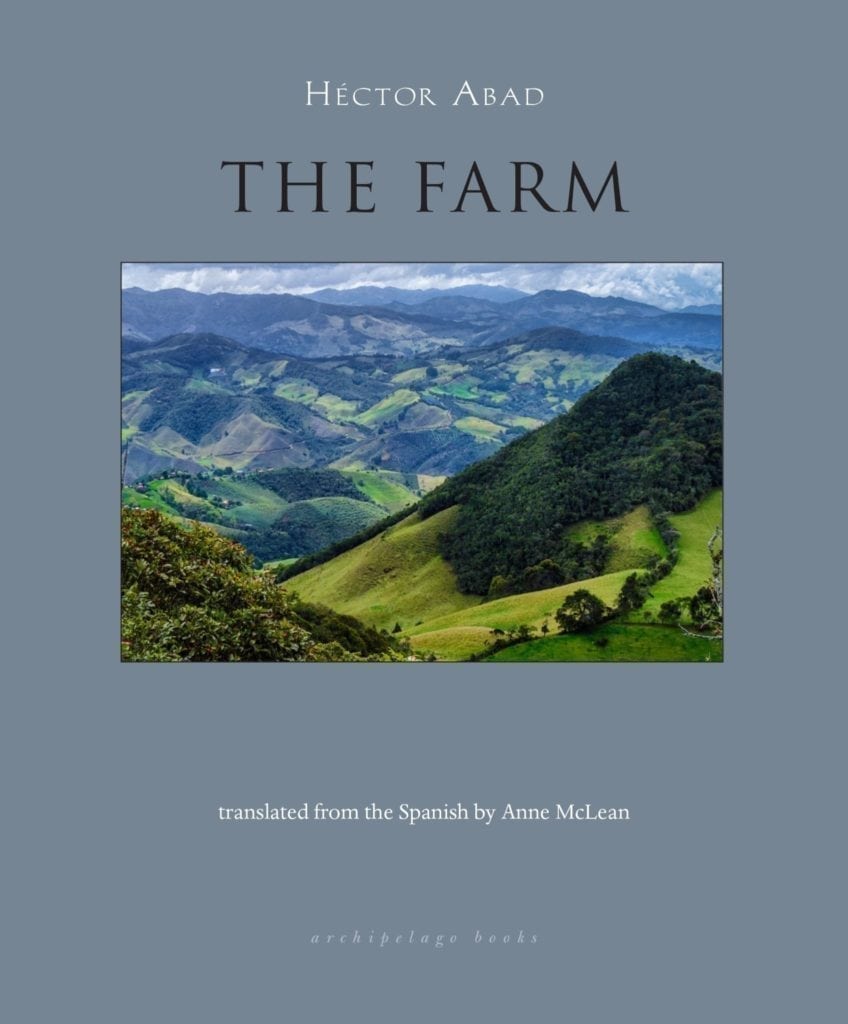Praise
The novel progresses through rings of memory, love, nostalgia, incrimination, judgment, and desire as the three siblings contemplate their attachment to La Oculta in successive first-person chapters. Mirrored so as to reflect one another, the glossy, dark, and quiet rings form and swirl out as if produced by a pebble thrown into the farm’s deep nameless lake... Abad’s skill in The Farm, and a reason he is one of Colombia’s most magnetic writers, is the capacity to embody the pebble, positioning himself in the center of rippling circles in order to appreciate the force from every surrounding point. For the English reader, translator Anne McLean enhances Abad’s radical centrism by successfully modulating the tone of each sibling to keep their voices distinct while also revealing interior emotional range, contradiction, and confusion.
Although the work is presented as a chorus of three voices, those of the siblings who narrate the events for us, this trio blends into one voice, that of the author, who becomes the ventriloquist for The Farm, the true protagonist...Héctor Abad Faciolince invites readers to discover what this book conceals or reveals in its chorus of three siblings’ voices as they alternate like soloists, speaking of the true protagonist of the story, a rural farm that could imprison or liberate, lock or unlock, depending on the lens through which it is viewed.
When his mother’s death brings him back to the family farm in Colombia, Antonio Angel must confront the country’s multi-layered history of violence. Long-suppressed memories resurface as Antonio and his sisters take stock of lives transformed and lost over decades of armed conflict and political corruption.
[The Farm] is a tale you don’t wish to end. . . told with love of the memories the country holds, fury at those who ravaged it and sorrow at everything that has been lost. This richly evocative saga is so persuasively alluring, it suggests the greatest of these is love.
At the center of Abad’s sprawling novel is an archetypal scenario: three grown siblings wrestling with what to do when they inherit their family’s farm upon the death of their mother... The overall effect creates a fantastic sense of the place described, while also illuminating the way that gaps in knowledge can shape who we are today.
The Farm is, first and foremost, a novel about the concept of home: how we identify home and how the idea of it means different things to different people. . . This is a lovely novel to immerse oneself in. . .
Extras
The Farm is longlisted for the Dublin Literary Award!
“I myself was in exile for many years. Now I am back and can see a serious effort to realize the dreams my father had 30 years ago.” Read the rest of Héctor Abad’s interview with Deutsche Welle here.
Read here about Héctor Abad’s interview with 60 Minutes, where he recounts life under Pablo Escobar.
“How difficult was it to delve into the Colombian conflict for this novel having lost your father to it?
I own a farm very similar to the one in the novel. My sisters and I inherited it from my father and when a father is murdered, his inheritance becomes like a fetish. The house is charged with life: it is as if it were him, a part of him. The difficult thing for me to understand was how each sibling has a different relationship with that house, with that memory. All had the same father, all knew the same house, but not everyone sees it in the same way.” – Read the rest of Héctor Abad’s interview with The Guardian here, where he talks about the legacy of Colombia’s civil war in his writing.

